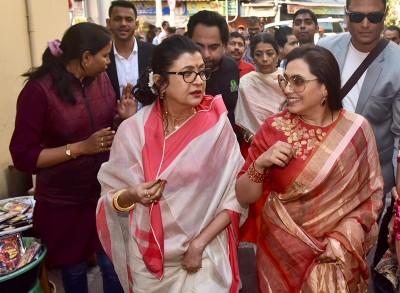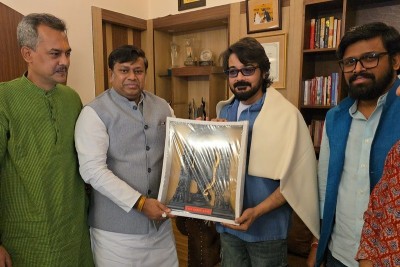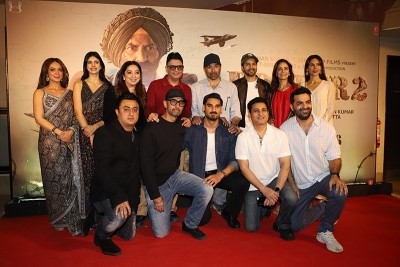My Melbourne is a relatable film which I helmed instead of directing: Imtiaz Ali
Bollywood's celebrated director Imtiaz Ali is one of the four filmmakers who contributed to the making of My Melbourne, an anthology of four stories about sexuality, gender, disability and race which was screened at the 30th Kolkata International Film Festival (KIFF) last week. IBNS-TWF correspondent Souvik Ghosh speaks to Imtiaz amid his busy day-long schedule featuring a tram ride in the city and indulging in taste buds. Excerpts...
Q. Tell us about working for the film My Melbourne.
A. This is the first time any of us have done an anthology. Four films with all distinct stories yet stride together by the general theme of inclusive living. We got a chance to work with a very unique crew which I think is the most inclusive way of work I have ever participated in.
Q. Does My Melbourne show a mirror to the world?
A. I think the reason why people watch movies is to see their own stories being represented on screen. The same has happened in My Melbourne. For instance, Rima's (Rima Das, one of the four filmmakers) film deals with disability and someone who is trying to fit into a society and an accepted group of people. Anyone, who may not have the same disability, will still relate to the journey of trying to belong upon watching it. So this is how I feel it's a mirror to what society is.
Q. How different is directing a film like My Melbourne compared to the one like Jab We Met?
A. My Melbourne was a very different experience for me because firstly, I did not originally conceive the story. I was helming it, mentoring many unique, young, emerging filmmakers in Melbourne. I didn't personally direct this film. It was directed by Arif Ali. It was a very different experience.
Q. You are known for your trademark romantic stories which have a very different language and tone. How did you adapt to the changes of the style of romantic films from the time of Jab We Met to Tamasha to the very recent Amar Singh Chamkila?
A. Every story is unique in its own way. I don't try to make any film different from any other. I just try to firstly understand what the story itself is so that it can be unique. I just try to write a story with honesty. In every attempt to make a film, I made sure not to do anything that I had done before.
Q. What prompted you to choose the subject of Amar Singh Chamkila, is it the life of the singer or the conflict?
A. I think the life of Amar Singh Chamkila was very relevant to any time because of the simultaneous presence of conflict and art. It was a unique love story between an artist and the art. So I wanted to tell that story.
Q. Since you are at KIFF, it's a very organic question to ask about how you view Bengali films now?
A. Bengali cinema should become stronger and look at its heart. I am waiting for Bengali cinema to grow to what it was some decades ago. I think in between I have stopped seeing very good Bengali films. It was glorious back in the day. I think it can do better and I am certain that it will.
Q. Could you give some confirmation on Fahadh Faasil making his Bollywood debut with your next film?
A. It's premature. Nothing is finalised yet.
(Images by Avishek Mitra/IBNS)
Support Our Journalism
We cannot do without you.. your contribution supports unbiased journalism
IBNS is not driven by any ism- not wokeism, not racism, not skewed secularism, not hyper right-wing or left liberal ideals, nor by any hardline religious beliefs or hyper nationalism. We want to serve you good old objective news, as they are. We do not judge or preach. We let people decide for themselves. We only try to present factual and well-sourced news.







